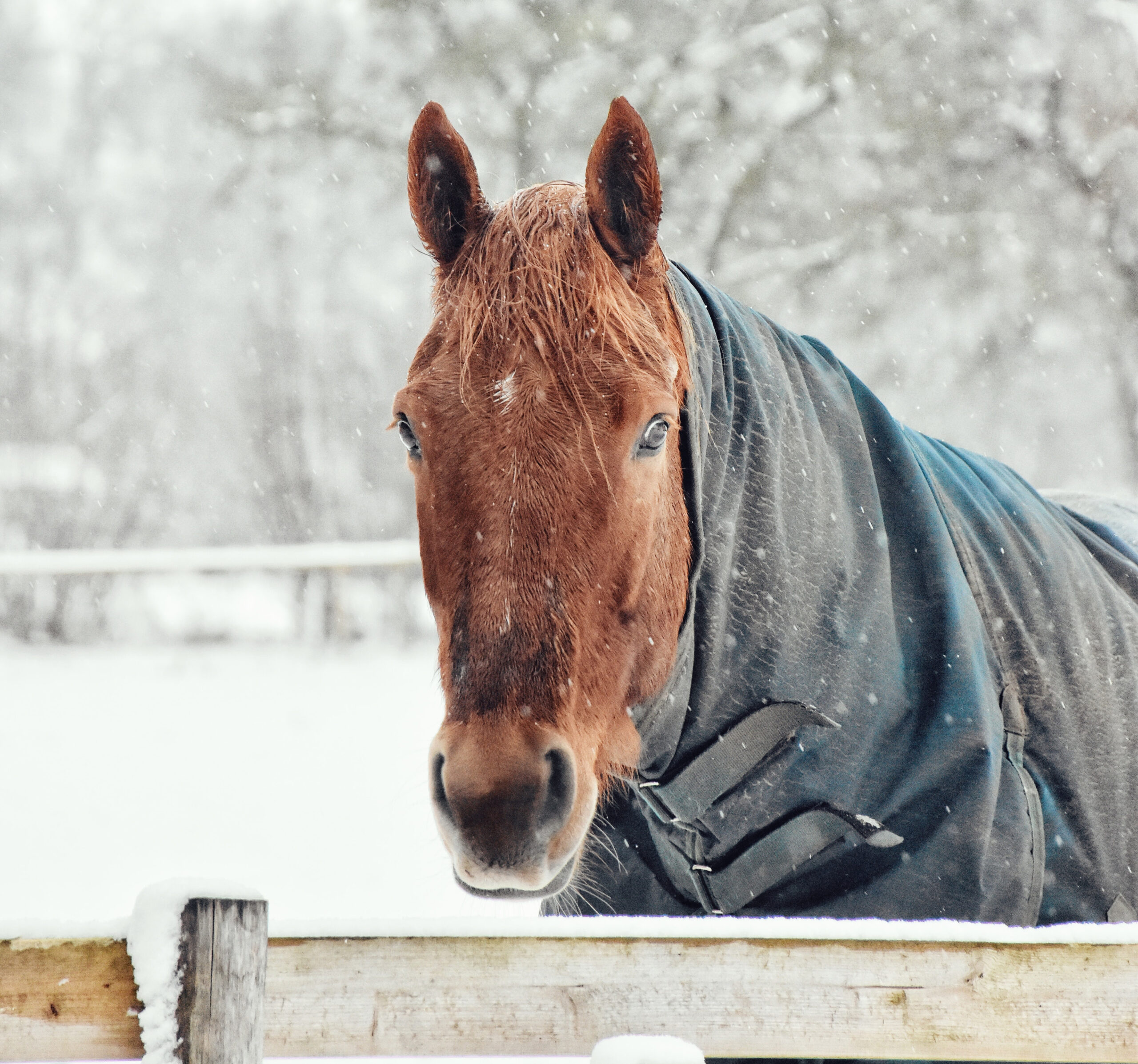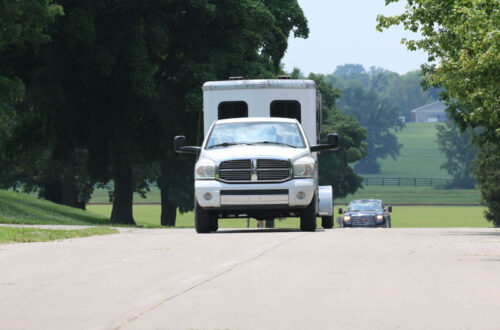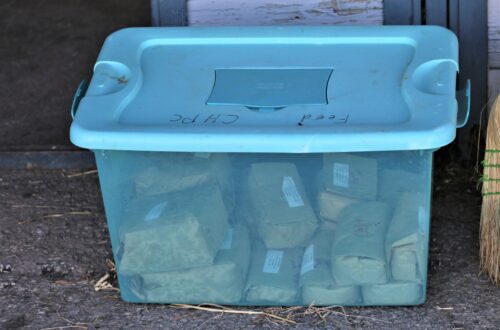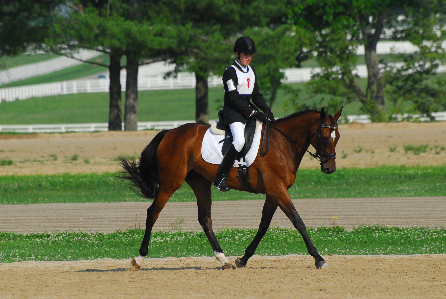
Winter Health Hazards for Horses
By Rae A. Birr, DVM
No matter where you live, there are seasonal changes in the environment that can have an impact on your horse’s health. The following is a list of common winter health hazards to be aware of as they apply to your area.
- Dehydration dangers. Access to fresh water is especially important in the winter. Whether the water tank or hose froze or the electricity went off and the automatic waters cannot provide water, horses still require a minimum of 8 – 12 gallons of fresh, clear water every day to support basic body’s functions. This is before you add any riding or exertion to their requirements. Do you realize when you see your breath it represents water loss from your body? It takes a lot of moisture to protect nasal passages from colder temperatures. Impaction colic is a regular winter health hazard which may result when horses eat more dry hay and do not drink enough water.
- Enclosed areas. The nice, snug, sometimes heated stable is a wonderful place for owners and workers to frequent, but not so much for the horses that live in that environment, often 24/7. Keeping fresh air circulating into stalls is a must for good respiratory health. If turnout is possible, healthy horses can readily withstand cold if they have shelter from wind and wet.
- Treacherous footing. Whether you are dealing with mud, snow or ice, slips and falls on treacherous ground are one of the winter hazards veterinarians must attend. Many older horses meet their end with a fractured pelvis or limb from slipping in the winter. Horses and humans alike can suffer sprains and strains from over-stretching ligaments and tendons in slippery conditions. Be sure to take precautions in mud, snow and icy areas. Use road salt with caution as the horses, if given access, may lick it and ingest the impurities in that kind of salt.
- Overfeeding and underfeeding. Winter is a time to frequently check your horse’s body condition score. Long winter hair can cover a seriously thin horse. And the pony that wears a grazing muzzle in the summer may balloon up in weight if given access to a lot of hay. As a rule of thumb, you should be able to feel the ribs over the barrel but not see them. Dental care prior to winter is also important. Your horse may have done well on soft, easily chewed grass, but that broken tooth or uneven arcade (row of teeth) makes chewing dry hay harder. As grazing animals, feeding small frequent meals is a good plan for horses but in the cold of winter, sometimes making multiple trips to the stable to feed can be challenging. Keeping clean, good quality roughage in front of our horses and ponies is important in cold weather as this generates heat through the digestion process. This is a balancing act for your easy keeper who can live on air and water!
- Blanketing blunders. Our horses can be better accessorized than the best Barbie dolls. Just be sure the winterwear you are using is appropriate for the conditions and not simply a fashion statement. A horse in a wet blanket is much more susceptible to being seriously chilled than a wet horse without a blanket flattening down his hair. Weather conditions change during the day and a heavy turnout blanket may be just the thing in the early morning chill but leave your horse sweating in the afternoon sunshine and then chilled as the cold sets in for the night. Proper adjustment of your blankets is important to avoid rubs and becoming tangled. Not only does a tangled-up blanket get ruined, but often the horse is injured as he tries to extricate himself. Even if a blanket looks fine, you still need to do a thorough daily inspection of your horse’s coat and body condition underneath. Leaving a blanket on for days causes rubs and skin issues, and can also lead to blanket chewing, rubbing and entanglement.
- Riding time. Extreme cold is hard on respiratory tissues. There isn’t one single temperature cut-off for riding as it can vary depending on the conditions and the specific situation, and is often a matter of personal preference. However, research shows that 15 degrees Fahrenheit is cold enough to cause irritation to the airways. If the cold makes your nose and chest hurt, it is probably making the horse feel the same way! Unfortunately, we cannot wrap our horses up in a woolen scarf to help warm the air. In cold temperatures, scale back your riding time and exertion. A short walk may be enough on the coldest days.
As you think about horse care in the winter, the list above should have you well prepared. Knowing the biggest hazards to look out for will help you keep your horse healthy, whatever the weather brings.
Rae A Birr, DVM is a graduate of Michigan State University College of Veterinary Medicine with a special interest in equine medicine and sport horse care. She has been involved with USPC since the 1970s, attaining a B certification, serving in local leadership positions and currently as Lake Shore Region Regional Supervisor, as a Governor on the Board and as Marketing and Communications Committee chair.





